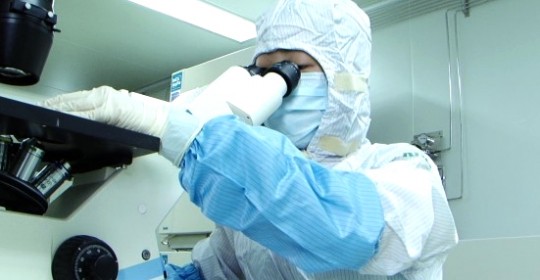
K Stem Cell’s Stem Cell Technologies: First Step towards Entering the Japanese Regenerative Medicine Market
-
Application for stem cell production filed in accordance with the Japanese Regenerative Medicine Promotion Act
-
Cultivation of autologous stem cells finally recognized as regenerative medicine material, rather than a mere drug
R-Japan, a Japanese affiliate of K-Stem Cell, Co., Ltd, a bio company specializing in adult stem cell, announced on the 12th that it filed the application for ‘production license for processed cell’ under the Japanese Regenerative Medicine Promotion Act.
In last November, the Japanese government designated cell treatment technologies as the core of the regenerative medicine. Subsequently, the government enacted, revised and enforced various related laws including the Regenerative Medicine Promotion Act. The enactment of the Act signifies that Japan became the first country to complete the legal preparation to build its regenerative medicine industry, and took the first step for taking the lead in, and standardizing the industry.
R-Japan’s application for ‘production license for processed cell’ represents the company’s first step to become the leader of the adult stem cell market in Japan. It also shows the importance of legal regulation, in that the stem cell research which began in South Korea blossomed into commercialization in Japan.
With the standard process for regenerative medicine and stem cell treatment technologies not complete established world-wide, R-Japan’s stem cell cultivation process will become the global standard once it is recognized by Japan, a country seeking to lead the industry. And the company’s stem cell treatment technologies will lead the world, gratified with Japan’s existing medical technologies, ensuring the ability to cultivate and provide stem cells to all hospitals which filed their plans for regenerative medicine to each local medical committee.
Under the instruction of Jeong-chan Ra, founder of K-stem Cell, R-Japan established a stem cell research center in Kyoto, Japan in 2010, and has been culturing stem cells ever since. Based on its 150 thousand cultivation records, the company filed the application for production license which it had been diligently preparing for the past year.
Ju-Sun Kim, representative of K-Stem Cell, said “the application for production license by R-Japan is highly significant that our technology will be used to treat cell damage patients from all over the world in Japanese hospitals, and South Korea needs to prepare its own legal regulations.”
Japan also revised its Pharmaceutical Affairs Act. IN case of regenerative medicine products, including stem cell medicine for specific diseases, a temporary license is provided after completing Phase 2 of the clinical test, under the condition that Phase 3 should be completed within 8 days.


우리나라 줄기세포 기술에 선두적인 역할을 기대합니다.
Reply기대하겠습니다
Reply척수손상 줄기세포 치료제이던 척수손상 줄기세포치료기술이든 하루빨리 개발되기를 바래봅니다
Reply